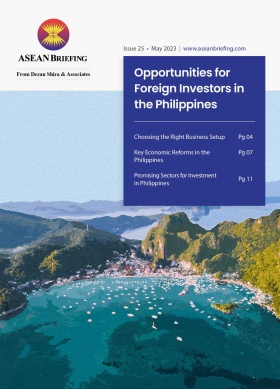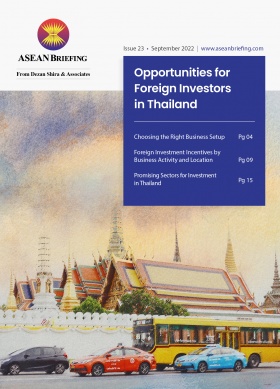Thailand’s Tourism Boost: Visa Waiver for Chinese Visitors
Thailand has introduced a visa waiver program for Chinese tourists as the government looks to boost the economy through this vital sector. As such, Chinese tourists can enter Thailand without a visa between September 25 and February 29, 2024.
Through this five-month stimulus scheme, tourists can stay for up to 30 days with the government aiming to attract some five million Chinese tourists by the end of the year and help contribute to Thailand’s tourism revenue target of 2.38 trillion baht (US$65.8 billion).Between January and September 10, 2023, Thailand saw over 2.2 million Chinese visitors, making it the largest source of tourists after Malaysia. Without the visa exemption scheme, the government expected to see 3.4 million Chinese visitors for the year or 31 percent of the total in 2019.
Thailand’s economic revival
Thailand’s GDP outlook is expected to grow between 2.7 and 3.6 percent in 2023, from 2.6 percent in 2022. Economic growth will be boosted by a recovering tourism industry and improving private consumption.
The tourism sector rebounding
Tourism is an important sector for Thailand. The sector contributes to approximately 20 percent of GDP with a record 39 million international tourists visiting the country in 2019 before the onset of COVID-19. This brought US$64 billion to the economy.
New investment opportunities beyond tourism
As the second-largest economy in ASEAN behind Indonesia, Thailand presents ample investment opportunities for foreign businesses. The country has experienced growing domestic consumption over the decades coupled with robust export-oriented manufacturing, resulting in the country gaining the status of an upper-middle-income nation in 2011.
Value-added manufacturing
Thailand’s economy depends on exports, accounting for some 60 percent of GDP before the pandemic. As such, the country’s manufacturing sector plays an important role, contributing 27 percent of GDP in 2021; the sector’s success or failure often dictates the overall health of the economy.
Over the last fifty years, Thailand has built up a robust manufacturing sector. It is now keen to attract investments for mid/high-tech manufacturing, especially as regional rivals like Vietnam and Cambodia become new centers for low-cost production in the region.
Electric vehicles
The Thai government wants Thailand to evolve into a base for electric vehicle (EV) production. German luxury carmaker, Mercedes, chose Thailand as its first site in Southeast Asia to manufacture its electric EQS model with Toyota as well as Chinese car manufacturer Great Wall Motor signing up for a government incentive plan to produce EVs in Thailand.
The country’s emergence as an EV production hub in the region has been fast-tracked by generous incentives, such as 3-11 years of tax holidays and investment incentives for EV infrastructure.
Additionally, Thailand plans to attract 400 billion baht (US$12.08 billion) in investments over the coming years and support the production of 1.2 million EVs and 690 charging stations by 2036.
High-end tourism
The economic impact of COVID-19 continues to be felt in Thailand’s tourism industry despite the country reopening its doors to international tourists and facing a tough rebuild. The industry accounted for 18-20 percent of the country’s GDP in 2019 when nearly 40 million international tourists visited the kingdom and generated approximately $US64 billion in revenue. As such, the government hopes to attract up to 10 million foreign tourists for the remainder of 2022.
In response to the slowdown, the Thai government is encouraging industry players to stop cheapening their goods and services and aim to attract higher-value tourists to turn the country into a premium travel destination.
The incentives apply to four categories of foreigners: wealthy global citizens, wealthy pensioners, work from Thailand professionals, and highly skilled professionals.
Smart farming and precision agriculture
Thailand is eager to transform its agriculture sector through the use of new technology, which presents opportunities in areas such as smart farming to ease industrial operations and increase production yields. Precision agriculture can help increase crop yields in different ways. For instance, precision planting involves planting seeds with a particular growth rate on soil whose properties best fit the genetics of the seed.
About Us
ASEAN Briefing is produced by Dezan Shira & Associates. The firm assists foreign investors throughout Asia and maintains offices throughout ASEAN, including in Singapore, Hanoi, Ho Chi Minh City, and Da Nang in Vietnam, in addition to Jakarta, in Indonesia. We also have partner firms in Malaysia, the Philippines, and Thailand as well as our practices in China and India. Please contact us at asean@dezshira.com or visit our website at www.dezshira.com.








